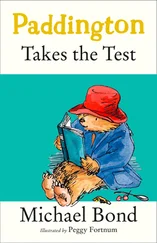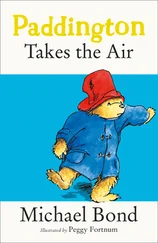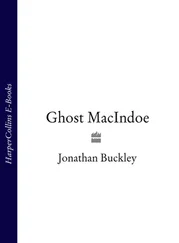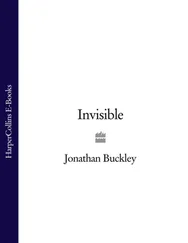Ian counts voicelessly to five and takes out his notebook. ‘So nothing out of the ordinary,’ he says, pretending to write. ‘Can you tell us anything about his family?’
For a good half-minute Hannah remains silent, sullenly messing with the floorboard, then she shakes her head. ‘I don’t think he had any,’ she says.
‘Did he tell you he didn’t have any family?’
‘The few times he spoke about his parents, it made me think that they were no longer alive. He never mentioned any other relatives.’
‘But did he ever actually state that he had no family? Explicitly?’
‘No,’ she says, dragging the word out, losing patience. ‘He never actually said that. Explicitly. I think he was on his own. I think he’d been on his own for a long time.’
‘So would you say you knew him well?’
‘No. Of course not,’ she says, twanging the strip of wood.
‘But as well as anyone around here?’
‘Possibly. Probably. I don’t know. Possibly. If he had any family I think he’d have told me.’
‘We heard that Henry was often seen walking with a young woman. Might that have been you?’
‘“Often seen”,’ she quotes under her breath, in a tone of bitter amusement.
‘So it was you, do you think?’
‘I suppose it was. Who had us under surveillance?’
‘You were noticed.’
‘I wouldn’t say often.’
‘What then?’
‘From time to time we went for a walk,’ she concedes.
This requires from Ian a count of ten. ‘You last saw him more than a month before he was discovered, yes?’ he continues.
‘That’s what I said.’
‘Would you have expected to see him during that period?’
‘No.’
‘So you saw him less frequently than once a month, on average?’
‘No.’
‘More frequently?’
‘Sometimes.’
‘But in December you didn’t have any reason to think something might be wrong?’
‘No, I didn’t,’ she answers, turning to look directly at him for the first time since opening the door. ‘I didn’t have any reason because I was not here. I’ve been in London. I went to London at Christmas and when I got back I saw the poster and I brought the picture in,’ she says to Ian. ‘So you can strike me off the list of suspects.’
‘We don’t have a list, Ms Rowe,’ says Ian, writing. ‘What was Henry’s surname, do you know?’
‘Baldwin,’ she says and Ian gives a small wry grin which Hannah, though she’s no longer facing him, notices.
‘What’s funny?’ she demands.
‘I wouldn’t say funny,’ Ian tells her. ‘Baldwin’s about the tenth name we’ve had for him. We’ve had Wilson, Ellis, McBain. And Yarrow. We’ve had others as well.’
Hannah resumes picking at the splinter, one pluck per second. ‘Well,’ she says with a shrug, ‘Baldwin it was. That’s what he told me.’ Chewing at her lip, in something like a sulk, she looks out of the window, reading the sky.
At this point it should be said that in addition to the tracksuit leggings and the shapeless T-shirt, Hannah does not seem to be wearing very much, and Ian is having difficulty, at times, in maintaining a respectful sight line. After the naming of Henry, when Hannah’s attention has returned to the world outside, Ian takes the opportunity for another sly appraisal of the comely bosom, and his gaze is continuing southwards when Hannah quickly turns round, as if remembering something she wanted to say. What happens now is that she turns away from Ian, who for most of the next ten minutes might as well be elsewhere, and asks of his colleague, as if out of whimsical curiosity, ‘Do you ever speak?’
‘I tend to be the listener.’
‘Like good cop, bad cop? Talking cop, listening cop?’
‘Something along those lines.’
For an instant Hannah comes close to smiling. ‘He was nice to talk to, you know?’ she says, letting the tears run. ‘He was such a nice man.’ For a few seconds she maintains eye contact, then her eyes change with a flash of anguish that makes them widen, as if startled by herself. ‘Fuck,’ she says through clenched teeth, swiping the tears off her face, but you can’t tell if she’s cursing her own crying or the fate of her murdered friend. ‘Fuck. Fuck. Fuck,’ she repeats passionlessly, glaring at the wall, at the sky, at her wetted hands. Her fury expelled, she turns back to the favoured policeman, presenting herself as someone who is now ready to talk. And talk she does, at length, as if she’s been called as a character witness for Henry Whoever.
It is important to her that we should appreciate his resourcefulness, his toughness, his gentleness, his refusal to complain about the lousy hand that life had dealt him. Despite the kindness of Malak (whose name is invoked like the name of the Good Samaritan), there were days on which Henry ate nothing, but Henry didn’t moan about going hungry – he simply remarked on it, as you or I might comment on a day on which the sun didn’t shine. In short, indigent yet uncomplaining, Henry had a rare air of dignity about him. Henry was charismatic. Henry was his own man.
‘Which is the reason we’re here,’ mutters Ian, who has been studying a fish tank that stands in a corner of the room, a fish tank filled with clear water and one-quarter filled with shells, crab claws, stones and miscellaneous beach debris, but apparently devoid of fish. ‘When he went AWOL, where did he get to? Any idea?’ he asks, addressing the side of Hannah’s face.
‘Last year it was Penzance, during the summer,’ she replies, as though the question had been put not by Ian but by his companion. And he was in Plymouth too, on the same trip. Why he’d gone there, how he’d got there, how long he’d spent there, she can’t say. When he came back from his travels he usually didn’t seem to know where he’d been. Once he was away for a short time, no more than a week, and when she next saw him a bus ticket fell out of his pocket while they were talking, and he picked it up and looked at it as if he’d never seen it before. And a couple of years back, she remembers, Henry reappeared wearing a T-shirt that had come from some car museum, yet Henry was almost certain he hadn’t been to any such place.
‘Almost certain?’ Ian interjects, having decided that the fishless fish tank is evidence in favour of the judgement he’d made on the basis of the black rag by the door.
‘That’s right,’ Hannah responds coolly, again to the non-speaker.
‘So he was confused,’ Ian summarises. ‘Mentally confused.’
‘That’s not how I’d put it.’
‘How would you put it?’
‘He was confused when he saw the ticket. When I asked him about the museum. But from day to day his mental state wasn’t confused.’
Mimicking the perplexity of the dense, Ian scratches his head, scowling at the effort of thinking. ‘You’re going to have to run that one by me again,’ he says. ‘He goes walkabout for a few days and when he comes back here he doesn’t have a clue where he’s been but his mind isn’t confused? I’m not getting it.’
Bestowing on Ian a brief irritated glance, Hannah explains, speaking slowly to the wall behind him. ‘When you talked to Henry he wasn’t confused. He made sense. He understood what you were saying to him. He answered in sentences. OK? But when he came back from his walkabout, as you put it, he seemed to have lost the time that he’d been away. It was as if he’d been sleepwalking. Make sense to you now?’
‘In my experience, when people wake up after sleepwalking they tend to be confused.’
‘He was, at first, a bit. But he wasn’t confused in the way you meant it.’
‘And how did I mean it?’
‘On the way to ga-ga. He was more blank than confused.’
Читать дальше












